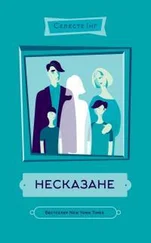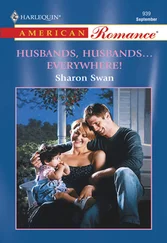“Izzy, sit up straight,” she would say at the dinner table, thinking: Scoliosis. Cerebral palsy. “Izzy, calm down.” Though she would never quite articulate it this way, resentment began to sheathe concern. ANGER IS FEAR’S BODYGUARD, a poster in the hospital had read, but Mrs. Richardson had never noticed it; she was too busy thinking, It wasn’t supposed to happen this way. “After all the trouble you’ve caused—” she would begin sometimes, when Izzy misbehaved. She never finished the sentence, even in her mind, but the old anxiety snaked through her veins. Izzy herself would remember only her mother saying, No, no, Izzy, why can’t you listen to me, Izzy, behave yourself, Izzy, for god’s sakes, no, are you insane? Drawing the boundaries over which Izzy dared to step.
Had Izzy been a different kind of child, this might have led her to be cautious, or neurasthenic, or paranoid. Izzy, however, had been born to push buttons, and as she grew—with excellent vision and hearing, no sign of seizures or palsy, and a clearly agile mind—the more closely her mother watched her and the more she chafed at the attention. When they went to the pool, Lexie and Trip and Moody were allowed to splash in the shallow end, but Izzy—then age four—had to sit on a towel, coated in sunscreen and shaded by an umbrella. After a week of this, she jumped headfirst into the deep end and had to be rescued by the lifeguard. The following winter, when they went sledding, Lexie and Trip and Moody slid shrieking down the hill, backward and belly first and three at a time and once—in Trip’s case—standing up like a surfer. Mrs. Richardson, perched atop the hill, applauded and cheered. Then Izzy went down once, tipped over halfway down, and Mrs. Richardson refused to let her get into the sled again. That evening, after everyone had gone to bed, Izzy dragged Moody’s sled across the street and slid down the bank of the duck pond and out onto the frozen water four times before a neighbor noticed and called her parents. At ten, when her mother fretted about her picky eating, wondering if she might be anemic, Izzy declared herself a vegetarian. After being grounded from sleepovers—“If you can’t behave at home, Izzy, we can’t trust you to behave in someone else’s house”—Izzy took to sneaking outside at night and returning with pinecones or a handful of crab apples or a buckeye to leave on the kitchen island. “I have no idea where that could have come from,” she would say in the morning, as her mother eyed her latest offering. The sense all the children had—including Izzy—was that she was a particular disappointment to their mother, that for reasons unclear to them, their mother resented her. Of course, the more Izzy pushed, the more anger stepped in to shield her mother’s old anxiety, like a shell covering a snail. “My god, Izzy,” Mrs. Richardson said, over and over again, “what is wrong with you?”
Mr. Richardson was more tolerant of Izzy. It had been Mrs. Richardson who had held her, Mrs. Richardson who had heard all the doctors’ prognoses, the dire warnings about what might be in store for her. Mr. Richardson, newly graduated from law school, was busy building his practice, working long hours in an attempt to make partner. To him, Izzy seemed a trifle willful, but he was glad to see her undaunted after such a terrifying start. He delighted in her intelligence, in her spirit. In fact, she reminded him of her mother, when she’d been younger: he’d been drawn to that spark, that certainty of purpose, how she always knew her mind and had a plan, how deeply concerned she was with right versus wrong—the fiery side of her that seemed, after so many safe years in the suburbs, to have cooled down to embers. “It’s okay, Elena,” he would say to Mrs. Richardson. “She’s fine. Let her be.” Mrs. Richardson, however, could not let Izzy be, and the feeling coalesced in all of them: Izzy pushing, her mother restraining, and after a time no one could remember how the dynamic had started, only that it had existed always.

The weekend after Thanksgiving, while Mrs. Richardson was still irked at Izzy, the Richardsons were due to attend a birthday party thrown by old family friends.
“Can Pearl come, too?” Moody asked. “The McCulloughs won’t mind. They’ve invited everyone they know to this thing.”
“Plus she’ll be one more person to gush over the baby,” Izzy said. “Which you know is the whole point of this entire party.”
Mrs. Richardson sighed. “Izzy, there are times when it’s appropriate to invite one of your friends, and times when events are just for family,” she said. “This is a family event. Pearl is not part of the family.” She snapped her purse shut and slung it over her shoulder. “You need to learn the distinction. Come on, we’re late.”
So only the Richardsons went to the McCulloughs’ that weekend, arriving in two cars—Lexie and Trip and Moody in one, Mr. and Mrs. Richardson in another, with a glowering Izzy in the backseat. No one could have missed the house. Vehicles filled both sides of the street—the McCulloughs had cleared the parking restrictions with the Shaker Heights Police in advance—and spilled over onto nearby South Woodland Boulevard, and an enormous bundle of pink and white balloons bobbed over the mailbox.
Inside, the house was already full to overflowing. There were mimosas and an omelet station. There were caterers offering bite-sized quiches and poached eggs in puddles of velvety hollandaise. There was a three-tiered pink-and-white cake, draped in fondant and topped with a sugar figurine of a baby holding the number 1 in its chubby hands. And everywhere pink and white streamers unfurling their triumphant way toward the kitchen table, where Mirabelle McCullough, the birthday girl, nestled in Mrs. McCullough’s arms.
Mrs. Richardson had met Mirabelle before, of course, months earlier, when she’d first arrived at the McCullough household. She and Linda McCullough had grown up together—Shaker class of 1971, old friends since meeting in second grade—and there had been a lovely symmetry to their paths as they’d both gone away to school and come back and settled in Shaker into careers of their own. Only where the Richardsons had right away had Lexie, then Trip and Moody and Izzy in quick succession, Mrs. McCullough had undergone over a decade of trying before she and her husband had decided on adoption.
“It’s just providential, as my mother used to say,” Mrs. Richardson had told her husband on hearing the news. “There’s simply no other word for it. You know what Mark and Linda have been through, all that waiting. I mean, I bet they’d have taken a crack baby, for goodness sakes. And then out of the blue the social worker calls them at ten thirty in the morning, saying there’s been a little Asian baby left at a fire station, and by four o’clock in the afternoon there she is in their house.”
She had gone over the very next day to meet the baby and in between cooing over the child heard Linda recount the story—how she’d gotten the call and had driven directly to Babies “R” Us, buying everything from a complete wardrobe to a crib to six months’ supply of diapers. “Maxed out the Visa,” Linda McCullough had said with a laugh. “Mark was still putting the crib together when the social worker pulled up with her. But look at her. Just look at her. Can you believe this?” She had bent over the infant cradled against her, with a look of pure astonishment.
That had been ten months earlier, and the adoption process was well underway now. They hoped to have it finalized in a month or two, Mrs. McCullough told Mrs. Richardson as she handed her a mimosa. Little Mirabelle was a darling thing: a fuzz of dark hair topped by a pink ribbon headband, a round pert face with two enormous brown eyes staring out at the crowd, Mrs. McCullough’s beaded necklace clenched in her fingers.
Читать дальше













